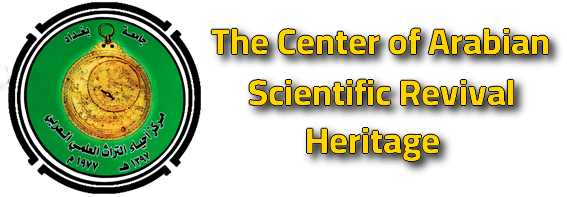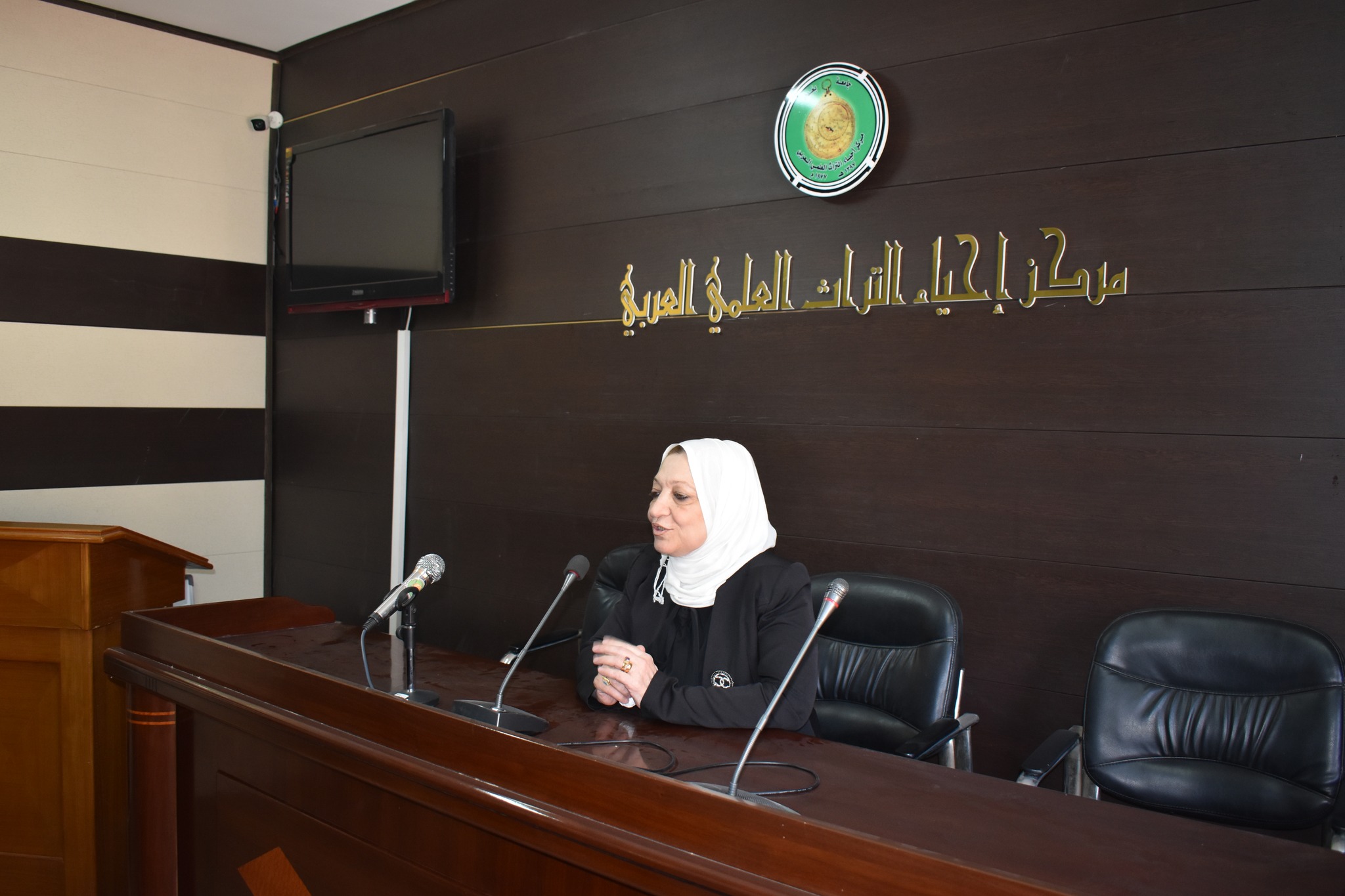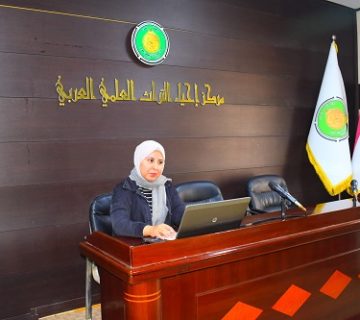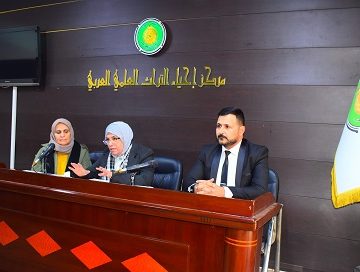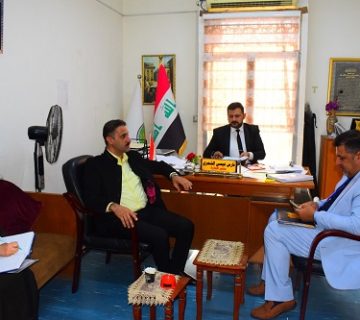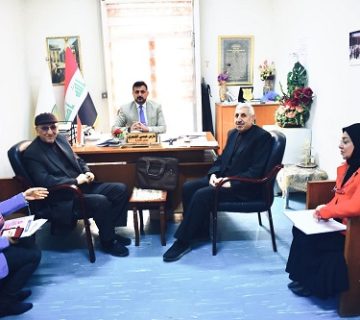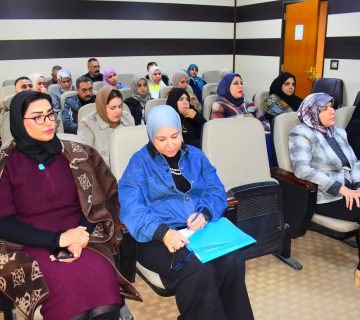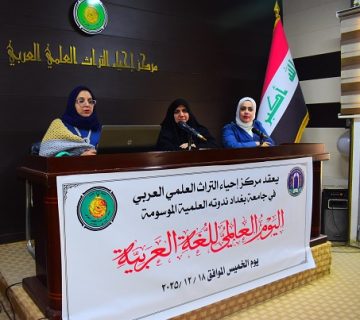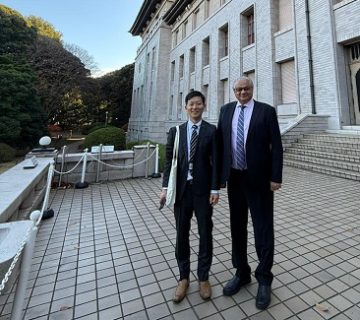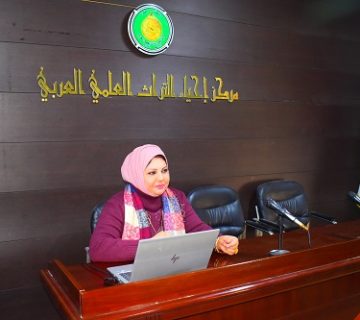The Center for the Revival of Arab Scientific Heritage at the University of Baghdad organized a seminar on Monday morning, 1/8/2024, in the hall of Professor Nabila Abdel Moneim in our center. A reading of the book (Golden Roots in Medical Terms). Muhammad bin Omar Al-Tunisi (1204 AH / 1789 AD – 1274 AH / 1857 AD) Investigation / Dr. Mahmoud Mahdi Badawi/Heritage Investigation Center at Misr University for Science and Technology Supervision / Prof. Dr. Anas Attia Al-Fiqi, the seminar was delivered by Professor Dr. Alaa Nafi Jassim, Director of the Center, as a speaker. This book was highlighted because it won the Heritage Book Competition for the year 2023 by the Ministry of Culture in Baghdad, and this book was issued by the Center for Arab Heritage Investigation at the Misr University of Science and Technology. The Book of Golden Fragments is an encyclopedia that is considered one of the most important and comprehensive traditional medical dictionaries, because it is a link between ancient medicine and modern medicine . It is a specialized scientific dictionary that deals with scientific terms, most of which relate to modern experimental sciences, such as terms (human and veterinary medicine, pharmacy, chemistry, nature, engineering, and astronomy), and other sciences related to medicine, such as plants, animals, minerals, machines, and tools used in diagnosing and treating diseases, surgery, and performing chemical experiments and measuring devices. Various items related to natural science, as well as linguistic vocabulary related to medicine, treatment, or body organs. It includes the names of some European countries that have therapeutic natural materials, some famous ancient doctors, and so on. Dr. Anas Al-Fiqi mentions in the introduction to the book: This dictionary was written by a team of Arab doctors and linguists during the era of Muhammad Ali, who took upon themselves the responsibility of reviving modern medical sciences, in which Europe had achieved great importance after it had benefited from Muslim scholars in the Middle Ages and studied Their medical writings and achievements, and the best evidence of this is the book “The Law” on Medicine by Ibn Sina, which was taught in European universities until the early eighteenth century. The governor, Muhammad Ali Pasha, sent a group of Egyptian doctors to France to learn medicine under the supervision of Dr. Clot Bey in 1832 AD. Upon the return of these doctors from the mission in 1838 AD, and after achieving remarkable success in their study of medicine, they, based on a high commission, translated the French medical dictionary by its author. (Faber) to the Arabic language to benefit from it in teaching students of the medical school in Egypt, because the medical school established by Muhammad Ali Pasha was taught in the French language, so the students needed a modern scientific dictionary that collected medical science terminology, so he wrote the book (Golden Scents), which included In five parts… The book’s investigator, Dr. Mahmoud Mahdi Al-Badawi, said that the book “The Golden Fragments” was attributed to Muhammad Al-Tunisi because he collected the most of its materials and put forth the greatest effort in arranging, correcting, editing, copying, and interviewing.
